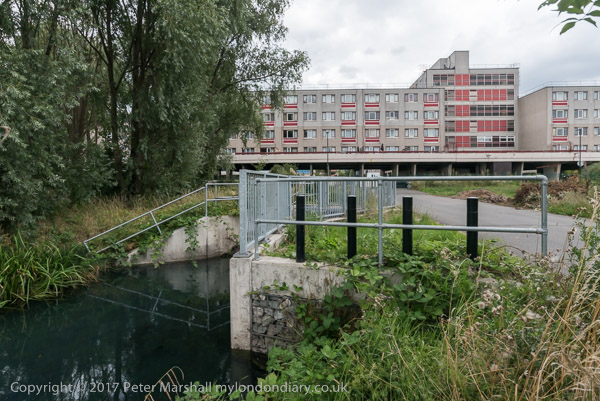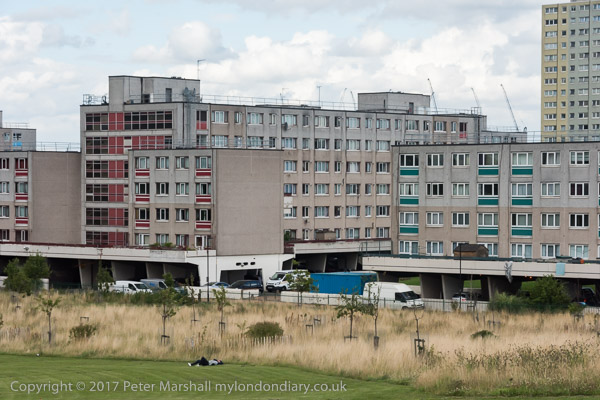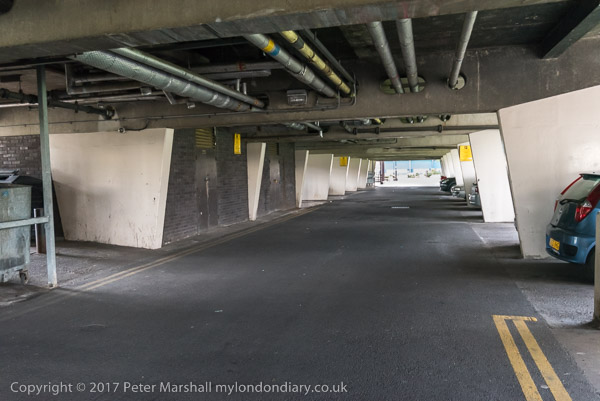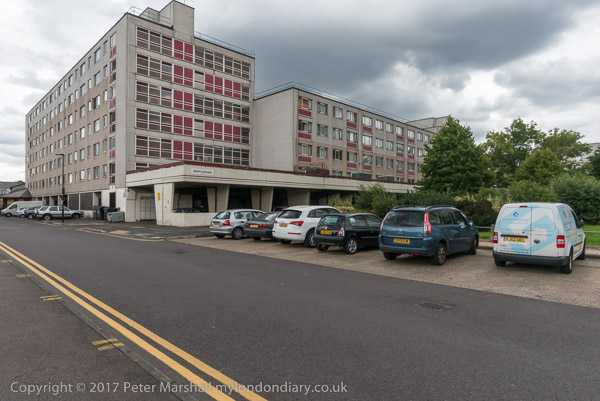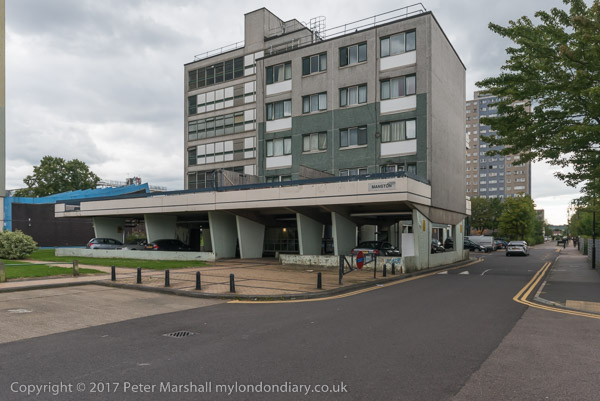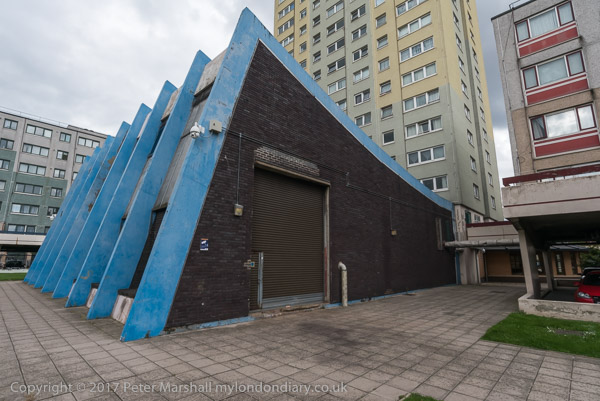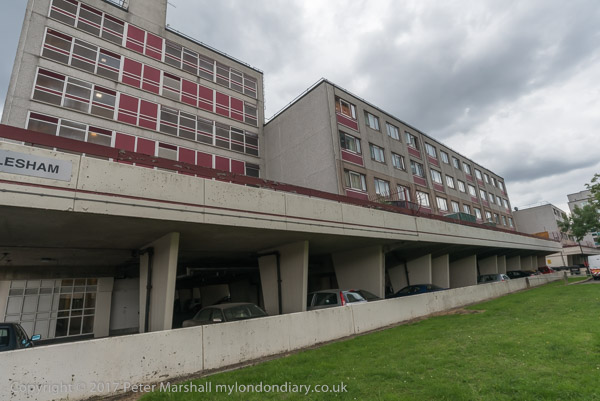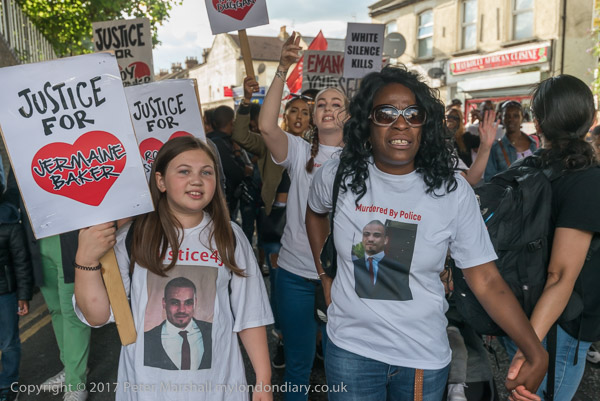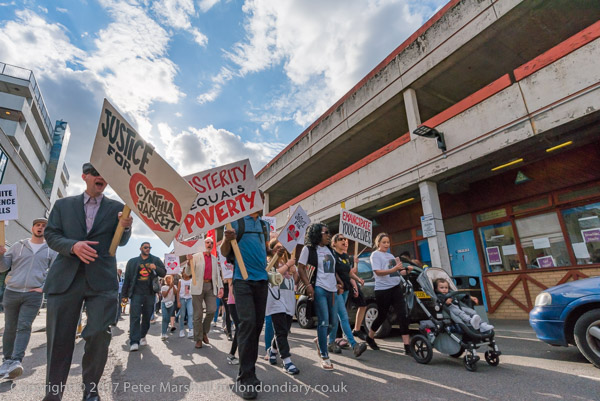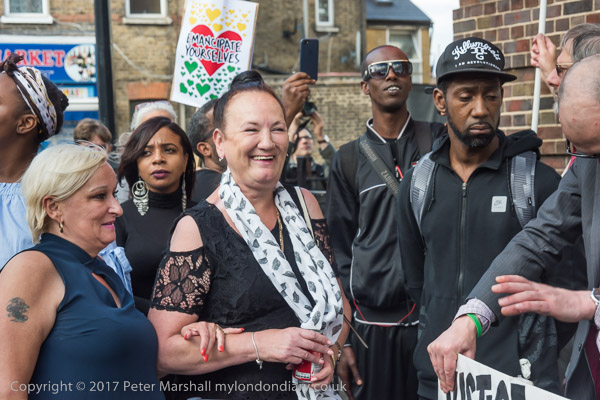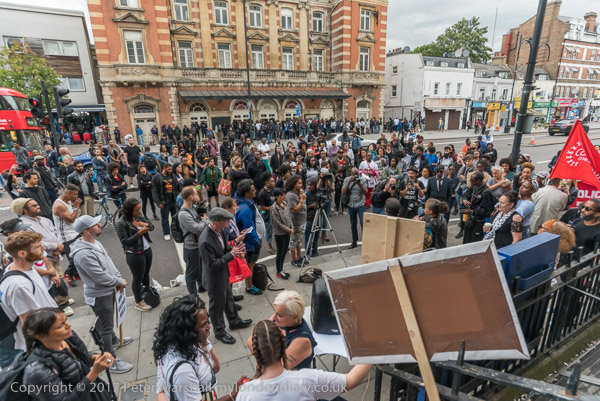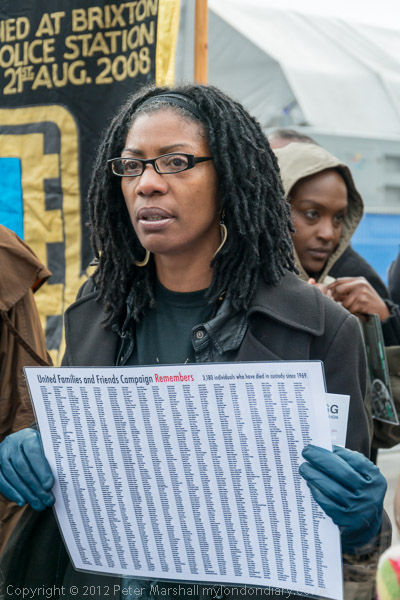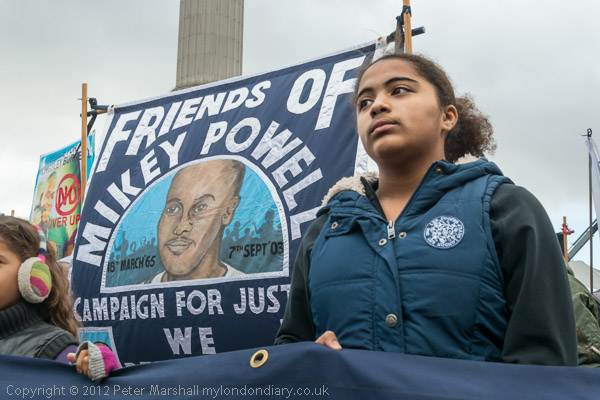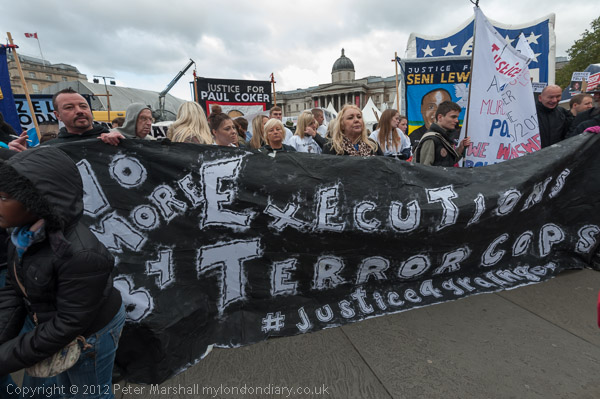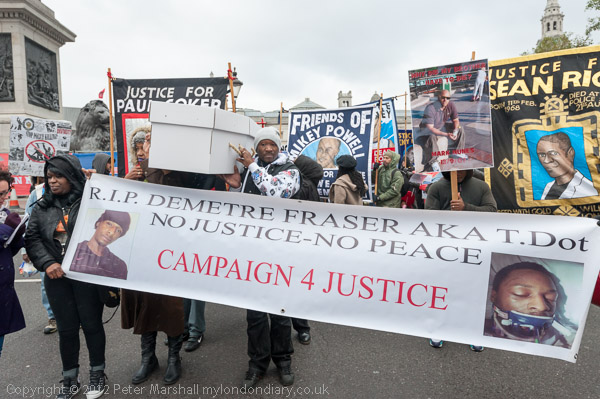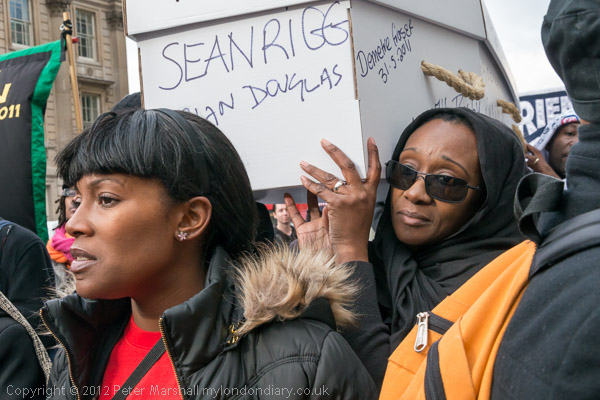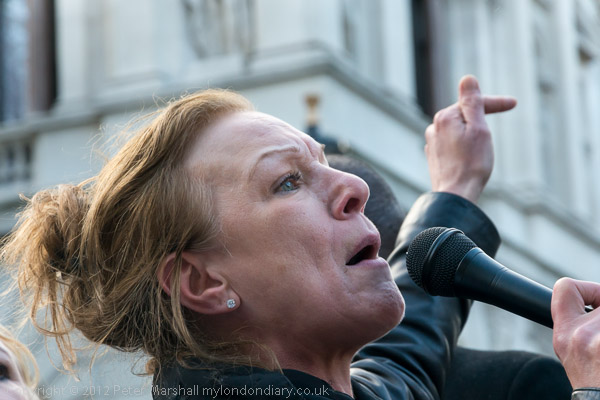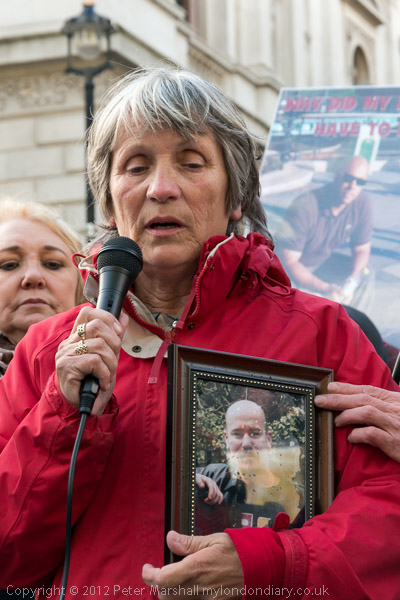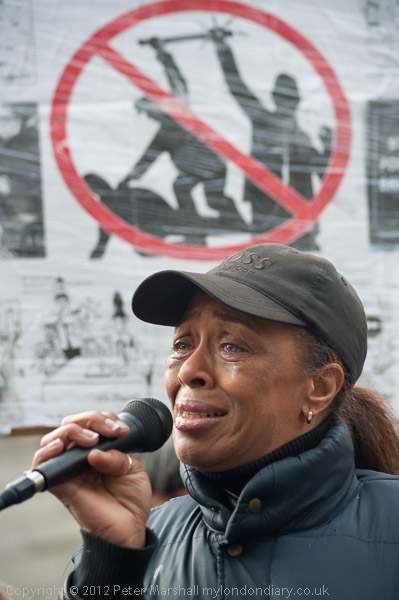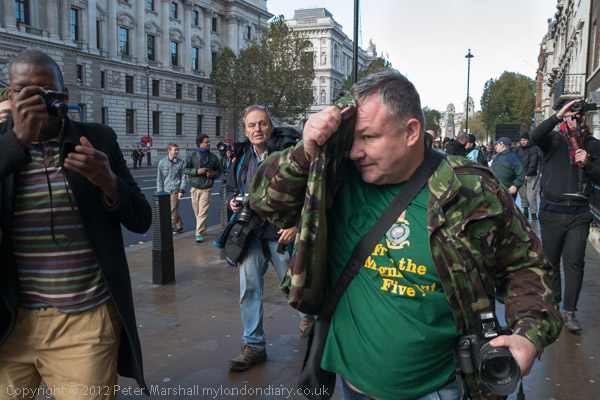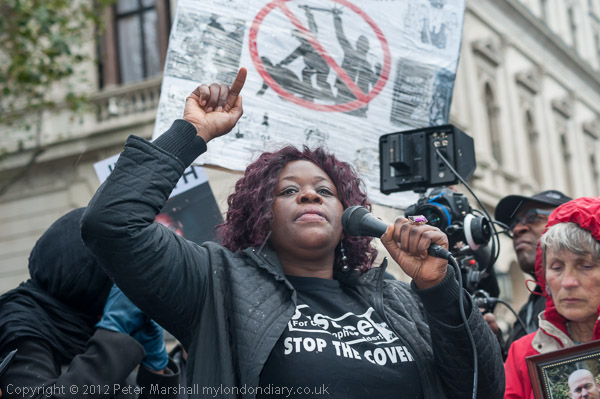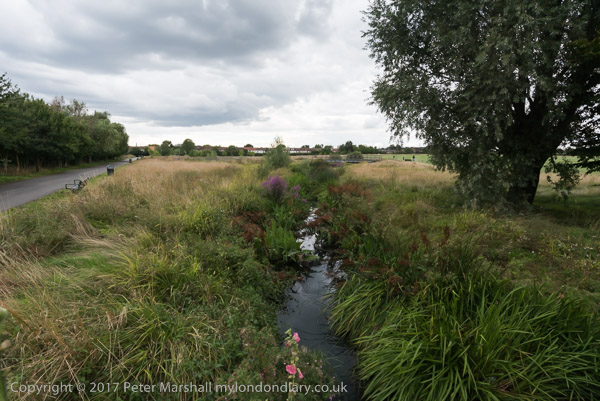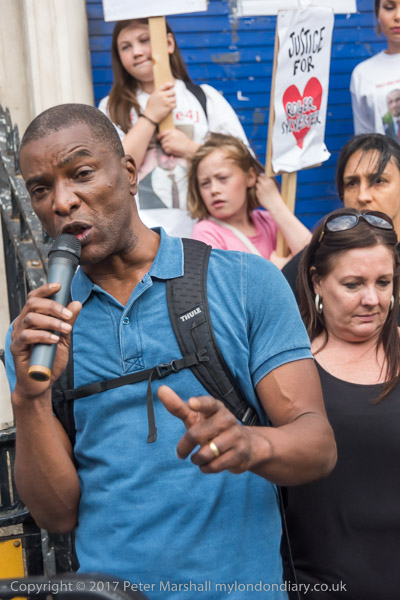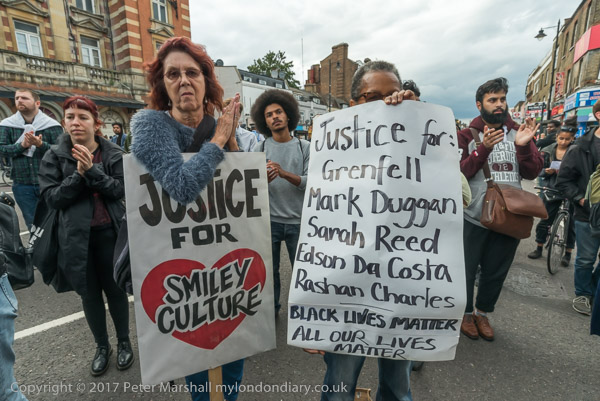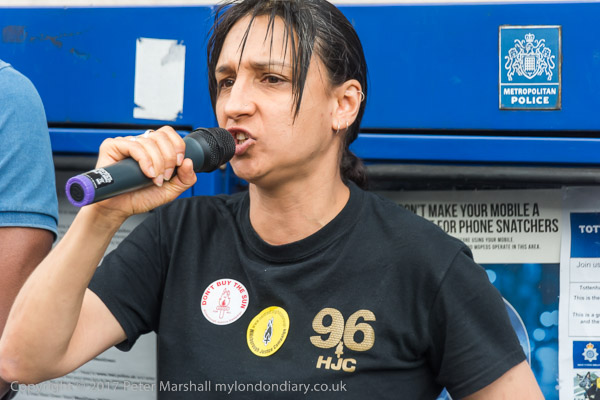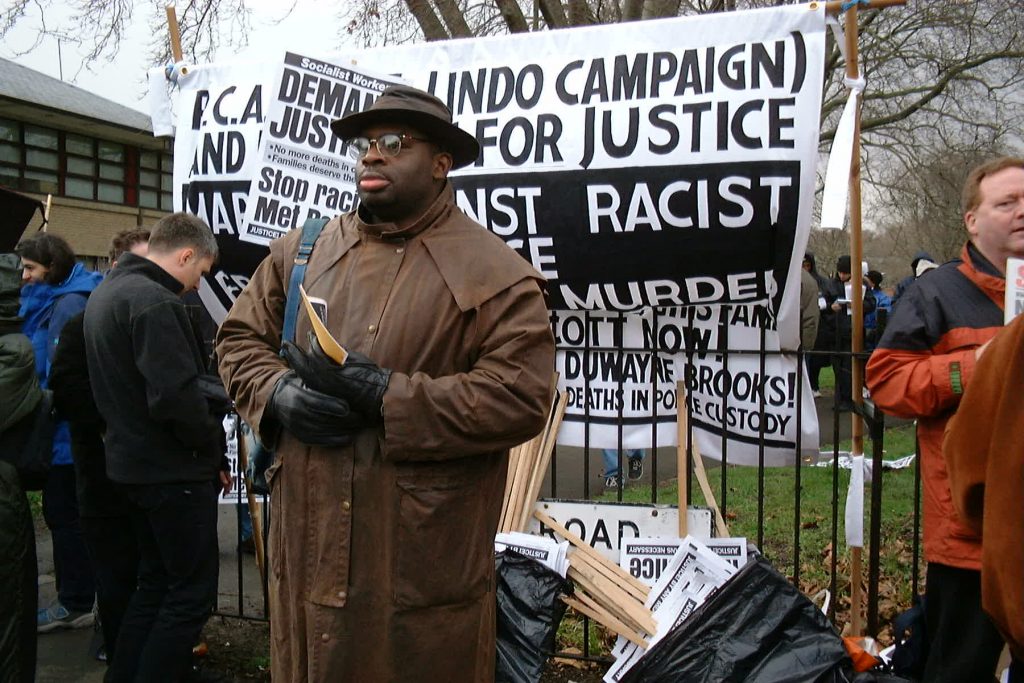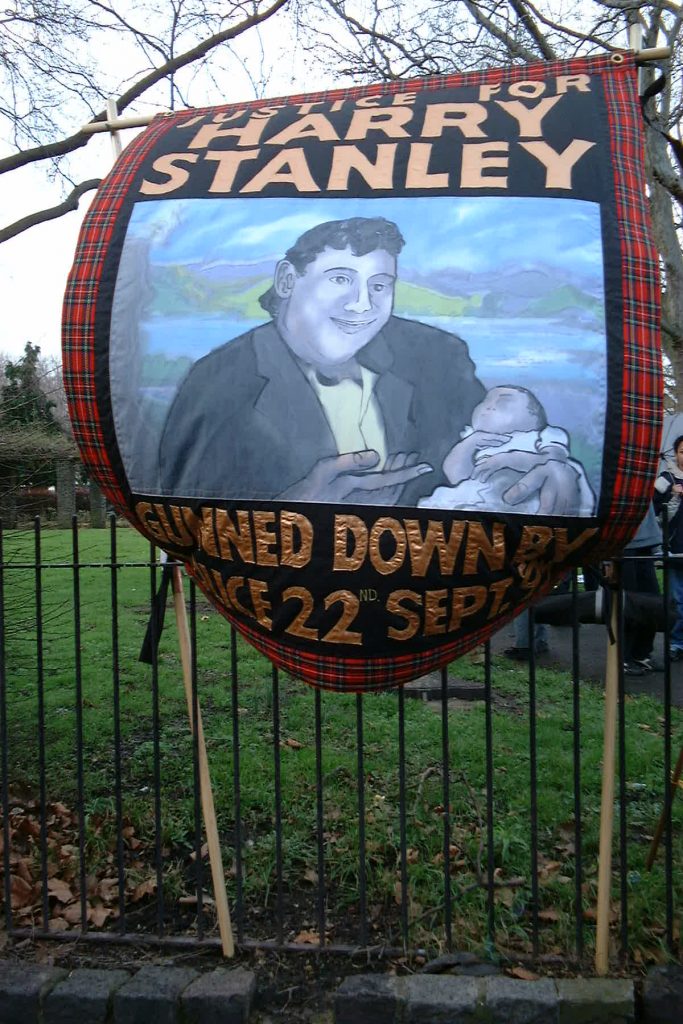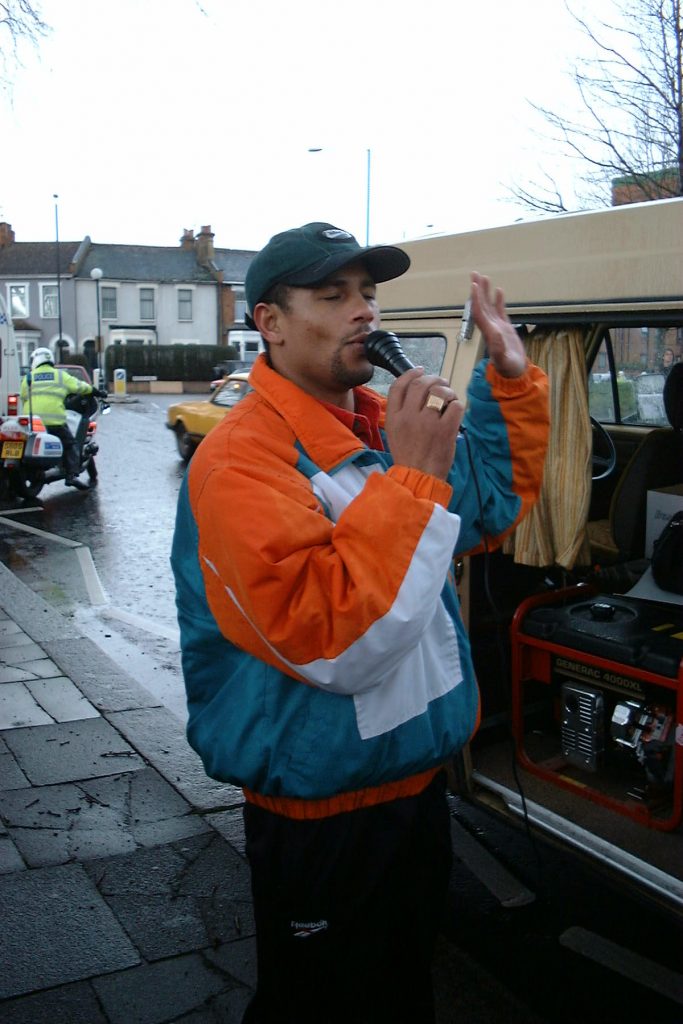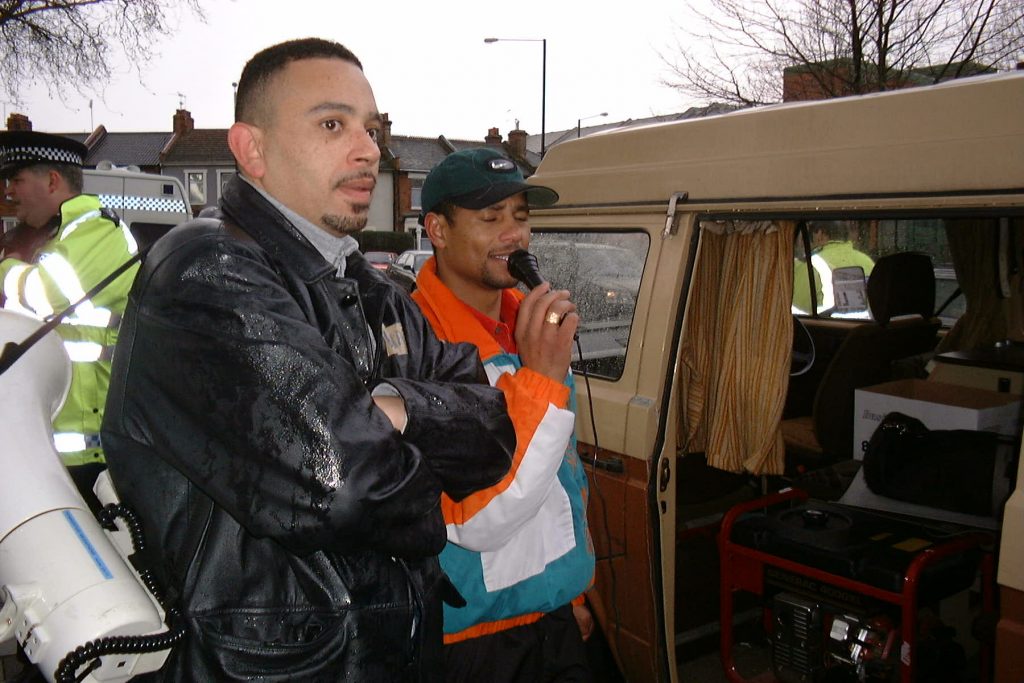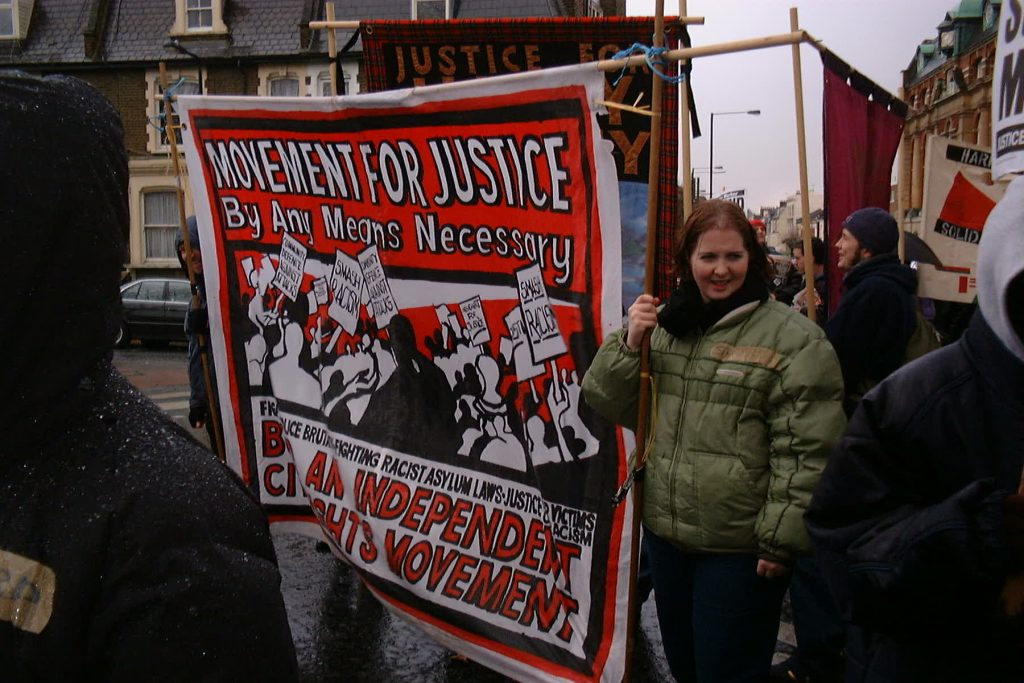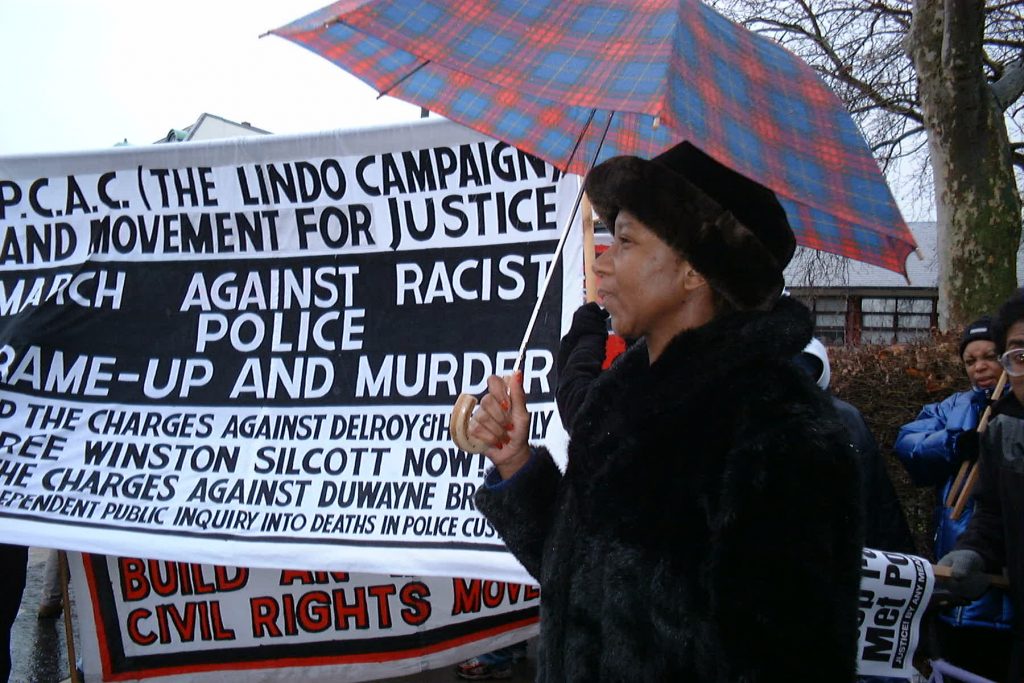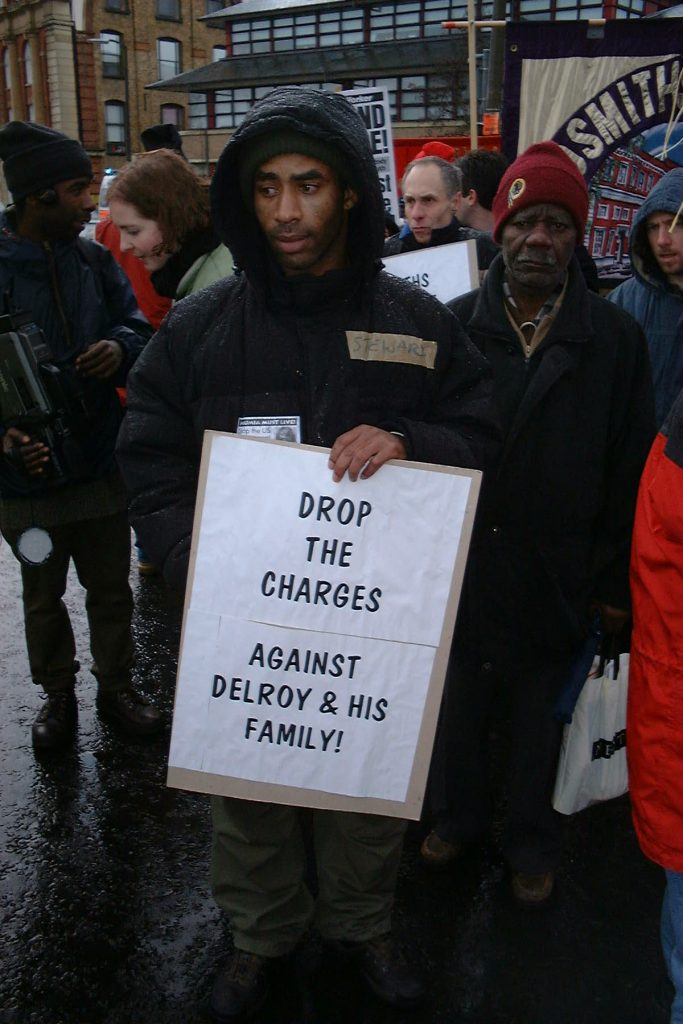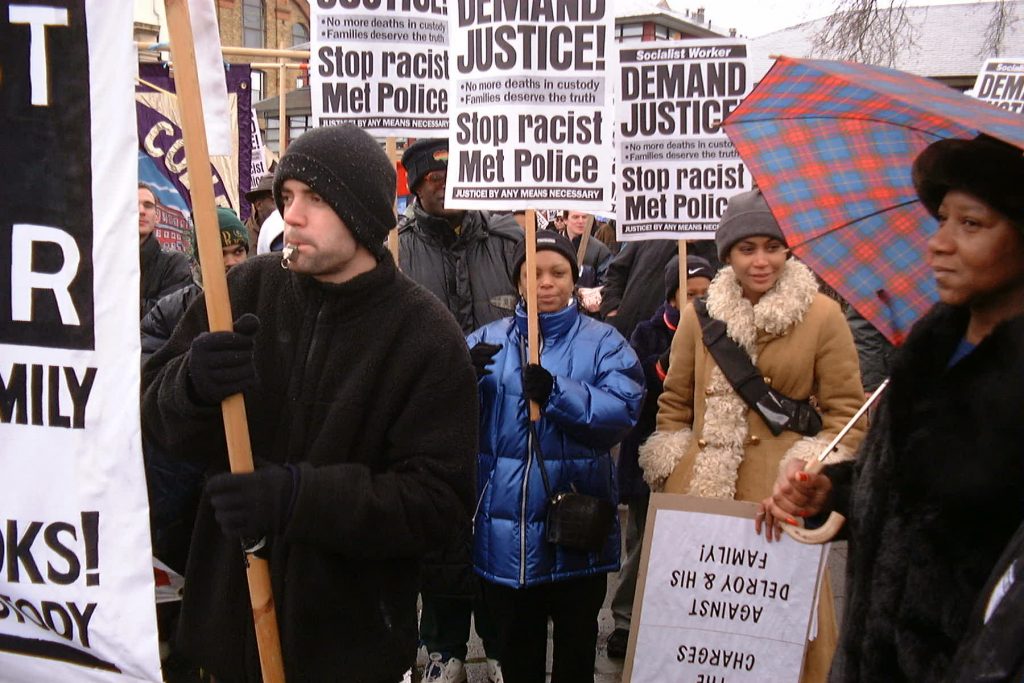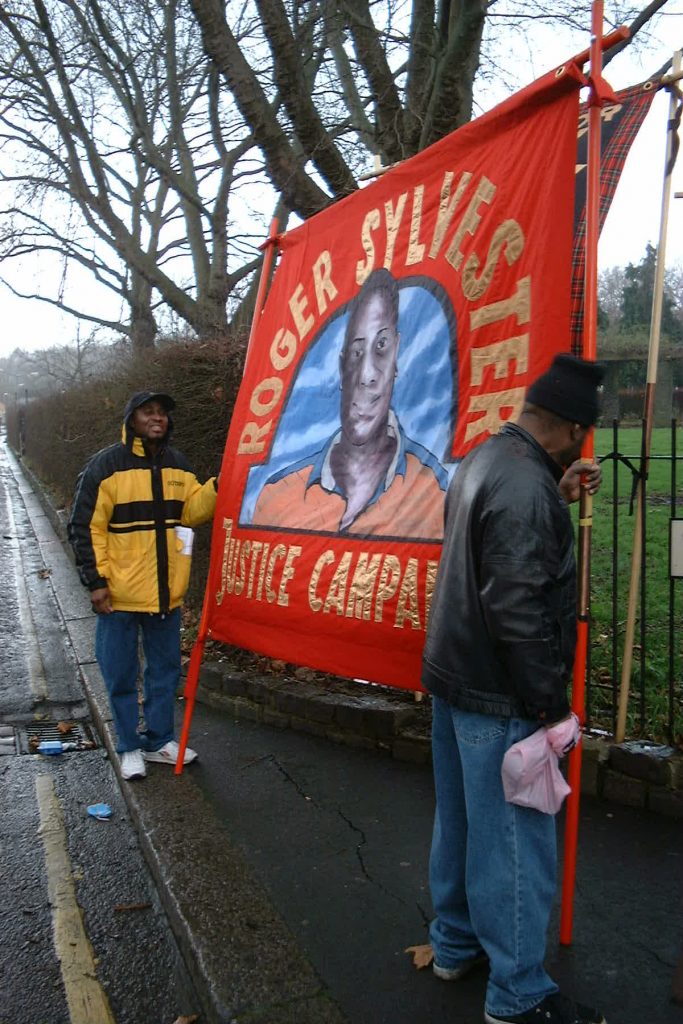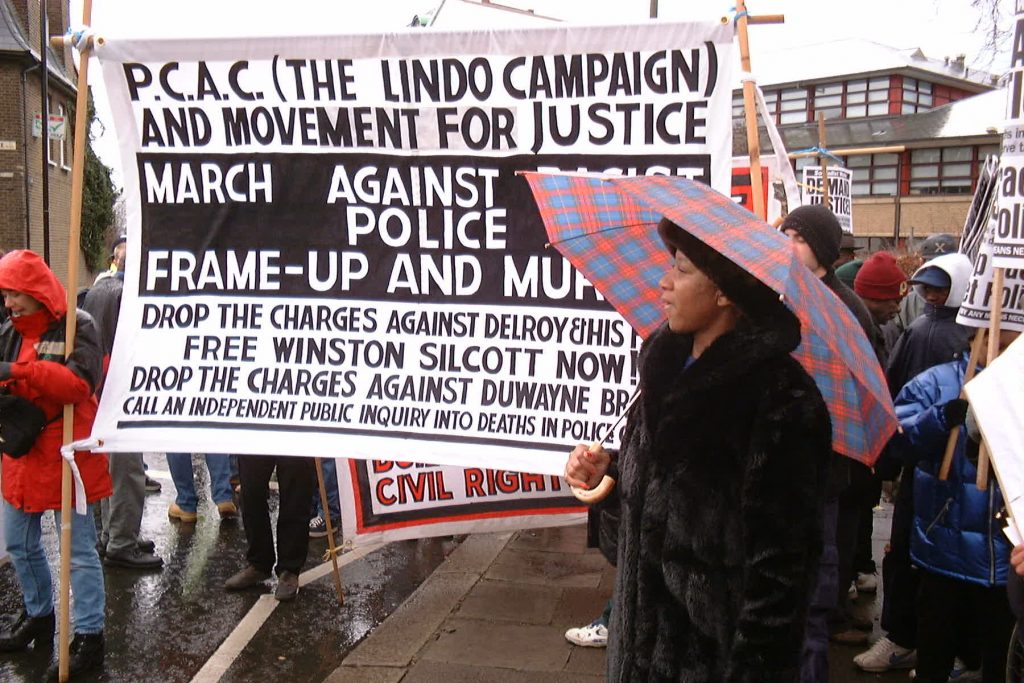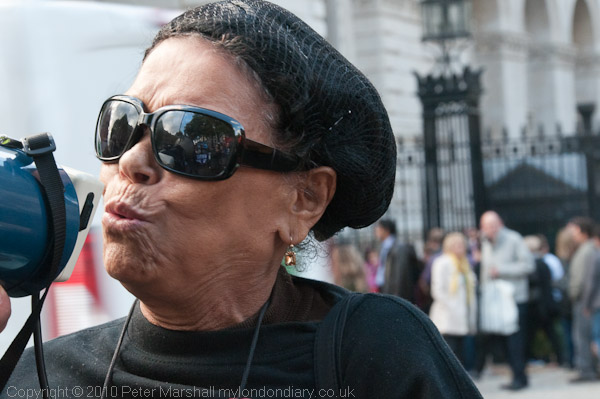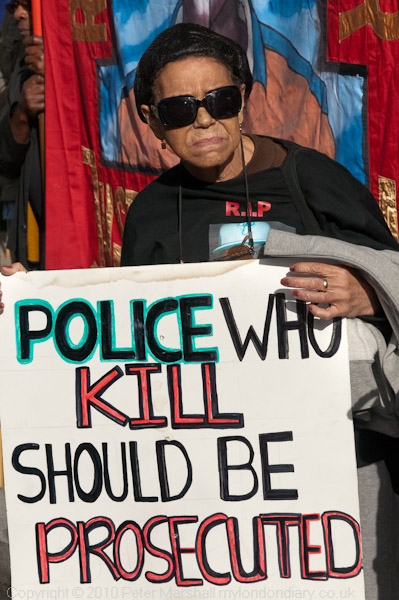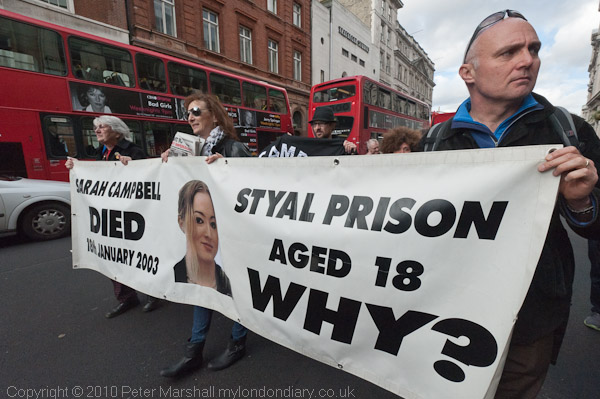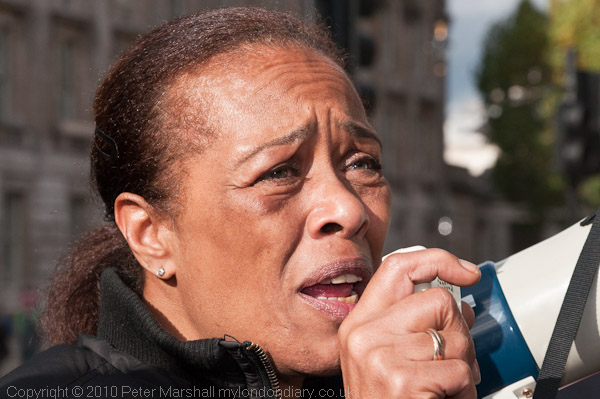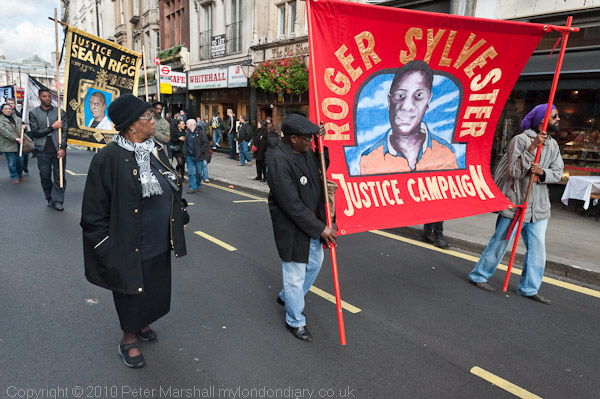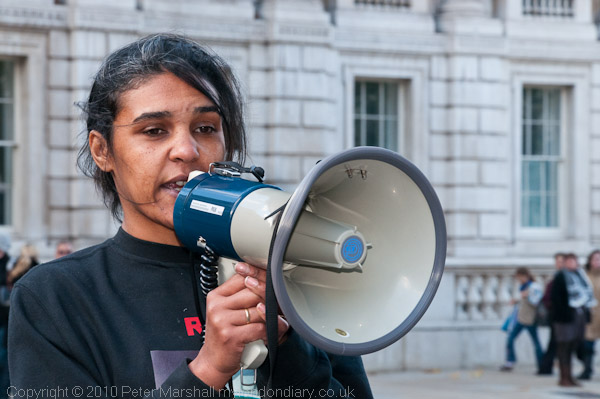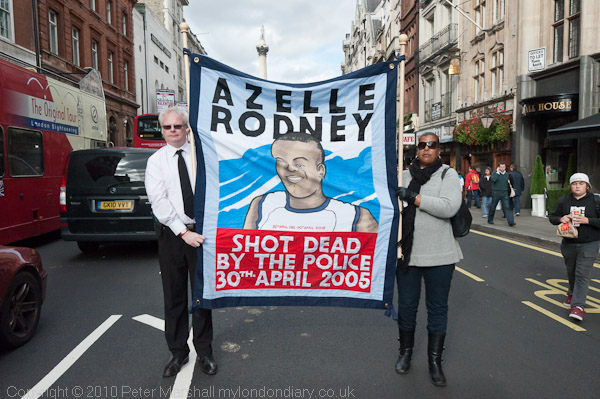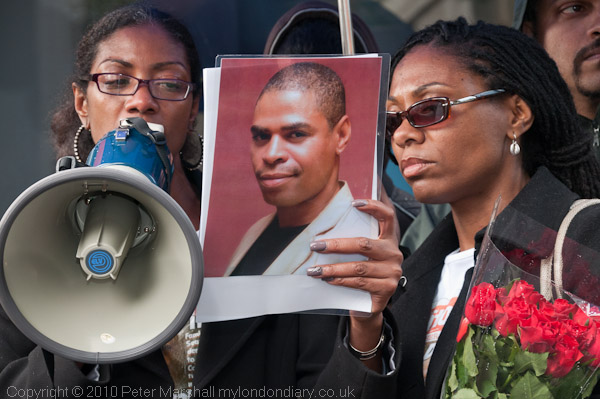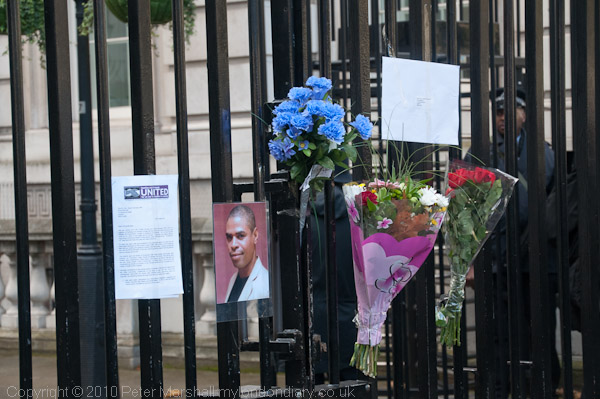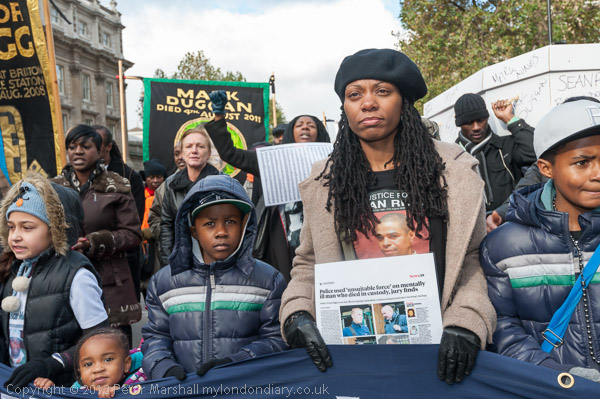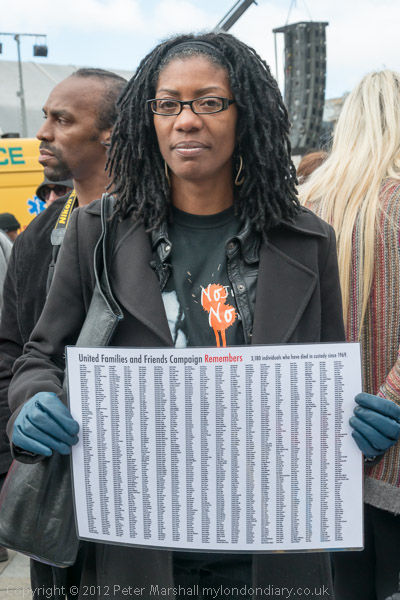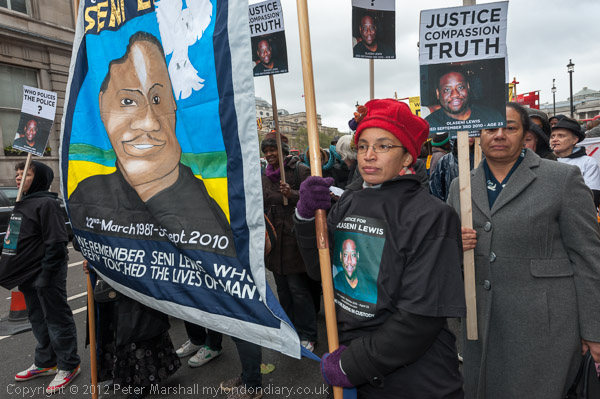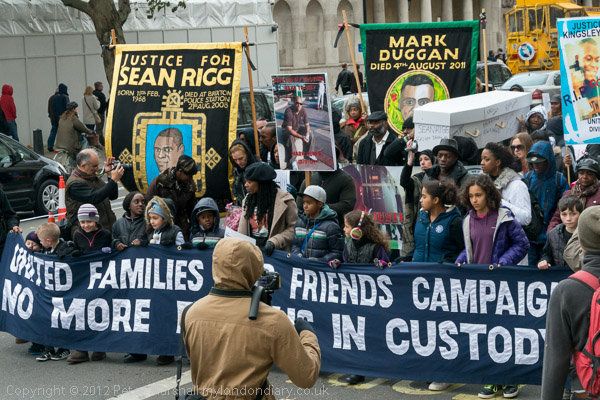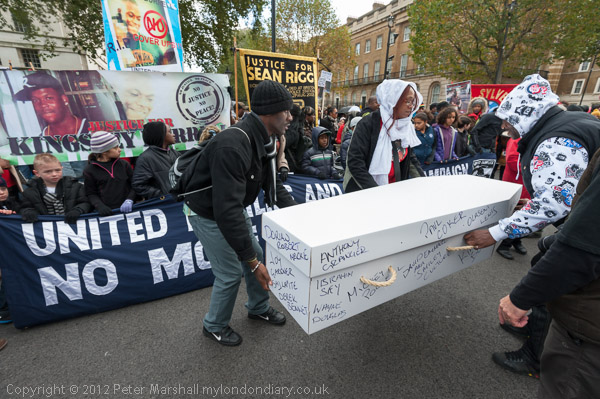Police Killing, NoBorders, Malaysia & Dance of the Dead: Saturday 30th October 2010 I went to the annual protest by United Friends and Families against deaths in custody, then a march by No Borders against surveillance and border control. At the Malaysian High Commission I photographed a protest against torture and other human rights abuses before finally going to photograph zombies in a Halloween Dance of the Dead Street Parade in Hoxton.
United Friends & Families March
Trafalgar Square to Downing St
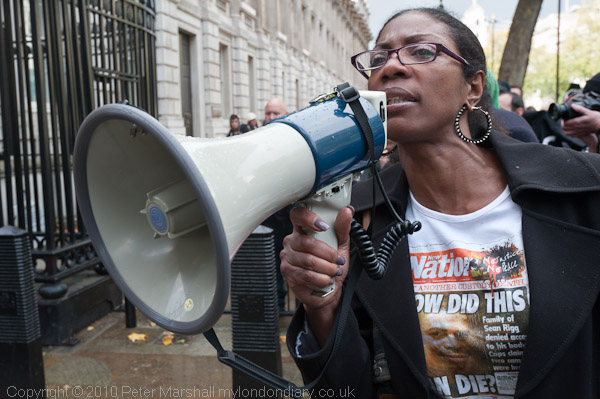
The annual march by United Friends and Families of those who have died in suspicious circumstances in police custody, prisons and secure mental institutions went in a slow, silent funeral march down Whitehall to Downing St, where they held a noisy rally.
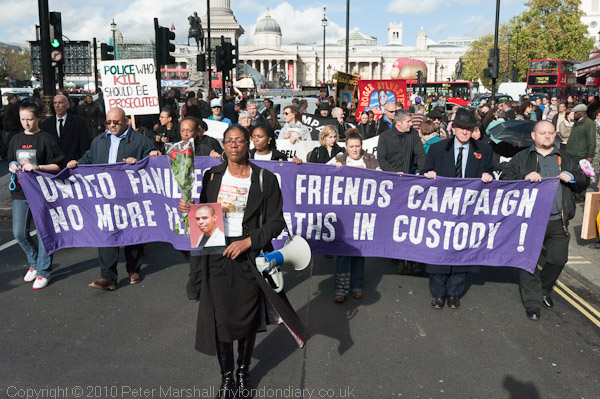
Police refused to allow them entry to the street to deliver a letter to the Prime Minister, David Cameron and would not take it. Apparently nobody from No 10 was prepared to come and receive it.
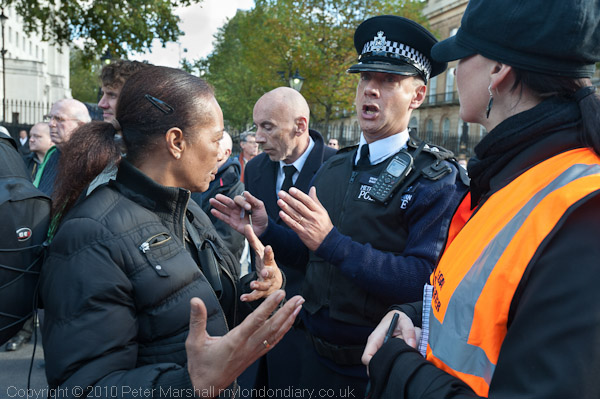
This march has taken place every year since 1999 and in most years police have stood back and let it happen, even facilitating it by stopping traffic. This year they had decided to try to stop people marching on the road down Whitehall, but the protesters simply stood in the road blocking it and refusing to move and were eventually allowed to proceed.
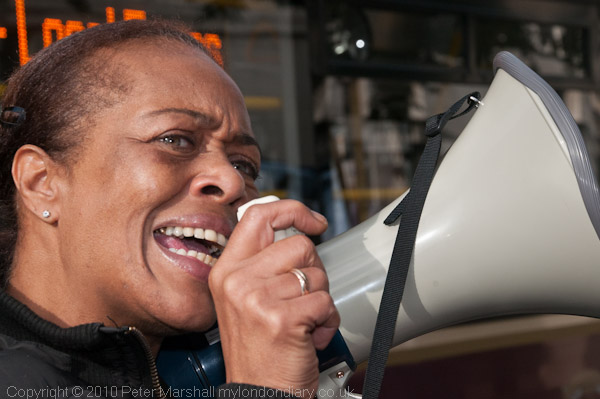
On My London Diary you can read more about a few of the several thousands of deaths in police custody, often clearly at the hands of officers.
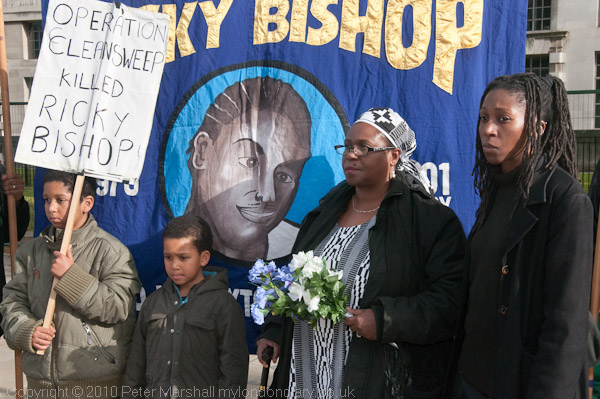
Among speakers at the rally were Stephanie, the twin sister of Leon Patterson, Rupert Sylvester, the father of Roger Sylvester, Ricky Bishop’s sister Rhonda and mother Doreen, Samantha, sister of Jason McPherson and his grandmother, Susan Alexander, the mother of Azelle Rodney, and finally the two sisters of Sean Rigg.
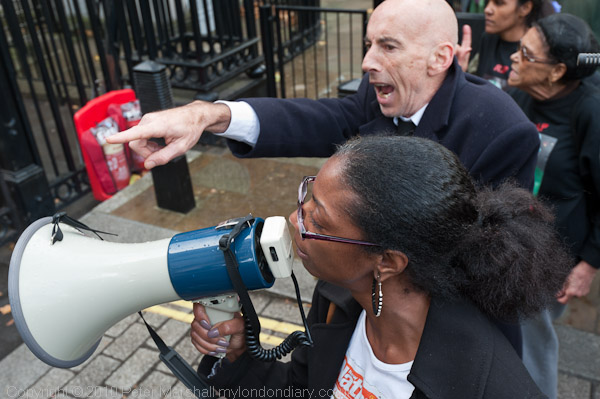
There were noisy scenes at the gates to Downing Street as the protesters tried to deliver a letter to the Prime Minister calling for justice, with police at the gate even refusing to accept the letter addressed to him. Eventually a few of the group were allowed to sellotape the flowers, a photo of Sean Rigg and the letter to the gates.
Much more at United Friends & Families March.
Life Is Too Short To Be Controlled
Piccadilly Circus, London
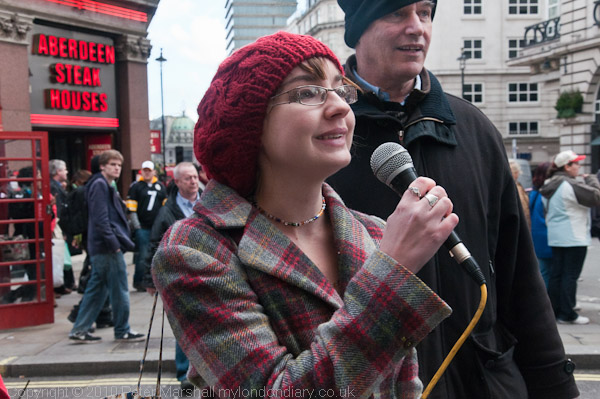
London NoBorders had organised a march from the pavement above the London main CCTV control room at Piccadilly Circus to the UK border at St Pancras International, protesting about the obsession with surveillance and border control.
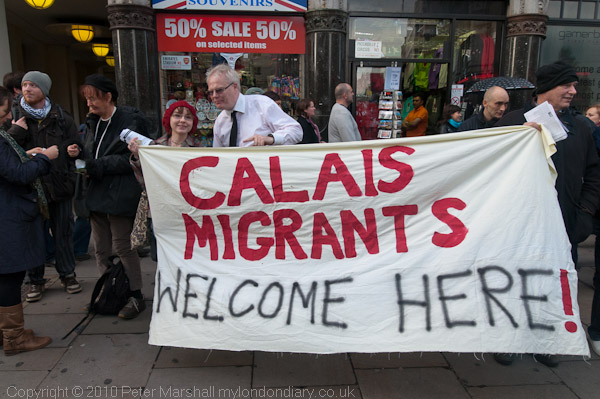
Westminster Council CCTV HQ, which controls many of London’s 10,000 CCTV cameras, able to follow our movement on almost every street in the capital was an obvious starting point for the second ‘Life is Too Short to Be Controlled’ protest organised by London NoBorders.
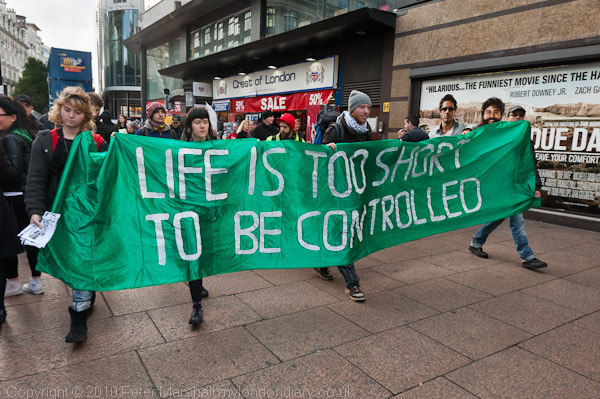
They point out that despite CCTV everywhere on our streets it had not been possible to show a link between it and crimes being sold and say the real purpose of spying on our every movement is its potential to control dissent.
The protesters also called out the deliberate racism inherent in the term “illegal imigrants“. No immigrants on reaching this country are illegal; they simply do not have the particular documents that give them the right to live here and only became illegal once their case to stay here has been turned down.
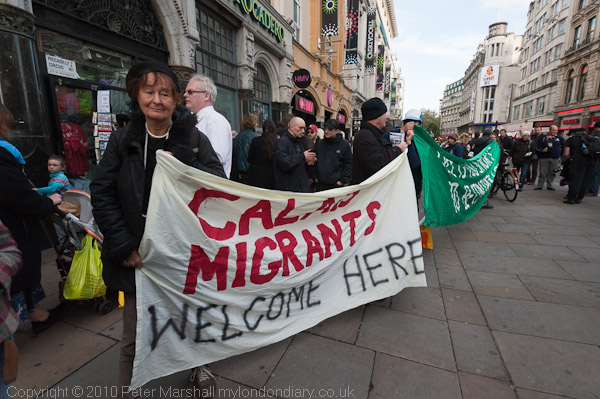
Until recently the free movement of people – like the free movement of money, goods and capital – was seen as normal and beneficial.Our immigration rules are explicitly racist and NoBorders say anyone should be able to move and live where they please.
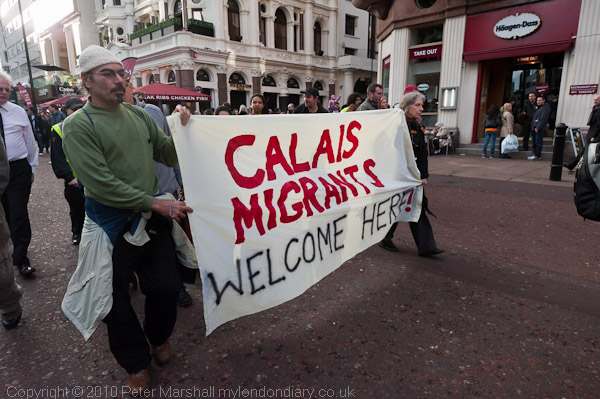
The march was delayed and I had to leave for another event before it reached St Pancras International, where those taking the Eurostar enter of leave the country. The station has detention facilities run by the UK Border Agency.
I returned later to hear that they had briefly occupied the ‘border’ area there before being escorted out by police. One person had been arrested and apparently charged with aggravated trespass, but I was told he was shortly to be released by the Transport Police.
Stop Torture in Malaysia
Belgrave Square
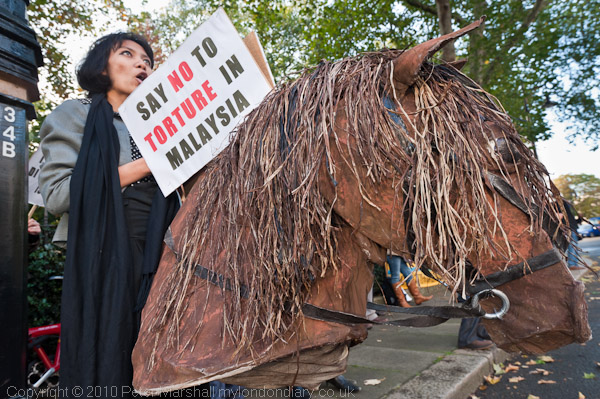
2010 was the 50th anniversary of the Malaysian Internal Security Act, ISA, under which more than 10,000 people have been detained without trial for up to two years – and this can then then renewed making it effectively indefinite.

Detainees can be held incommunicado in detention for up to 60 days, during which they are often tortured, mistreated and placed under severe psychological stress while being denied access to legal process.

In June 2010 the UN Working Group on Arbitrary Detention visited Malaysia and they called for the ISA to be immediately repealed, and the UK chapter of the Malaysian Abolish ISA Movement (AIM) was protesting outside the Malaysian High Commission.

The protest in October marked 23 years since ‘Operation Weed Out’ (Operasi Lalang) when the ISA was used to arrest over 100 Chinese educationalists, civil rights lawyers, opposition politicians and others.
More on My London Diary at Stop Torture in Malaysia.
Halloween In London & Dance of the Dead
West End & Hoxton Square
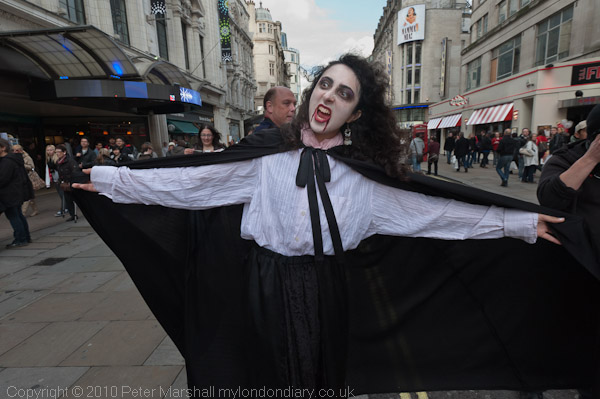
I’d met a few zombies stumbling around as I walked through the West End – and some of them had come to be photographed with the NoBorders ‘Life is too Short’ banner. But I went photograph the the Halloween Dance of the Dead Street Parade which started from Hoxton Square and was going on to end at a party in Gillett Square, Dalston.
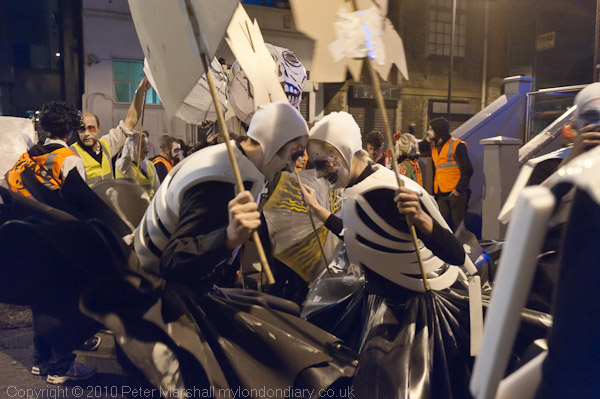
Hoxton Square had by 2010 become a trendy area with art galleries such as White Cube moving in an area some years after furniture and other local trades had declined and it had been squatted or rented as cheap studios for artists since the 1980s or so. Below is what I wrote in 2010 about the parade.
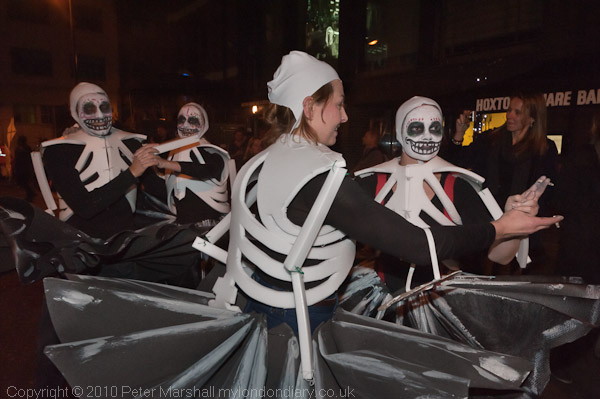
“By 7pm, there were several hundred people ready for the procession to start, including a group of dancers, the ‘Corpse de Ballet’ and a group from Strangeworks with some very well designed costumes, along with many others dressed up for the occasion.”
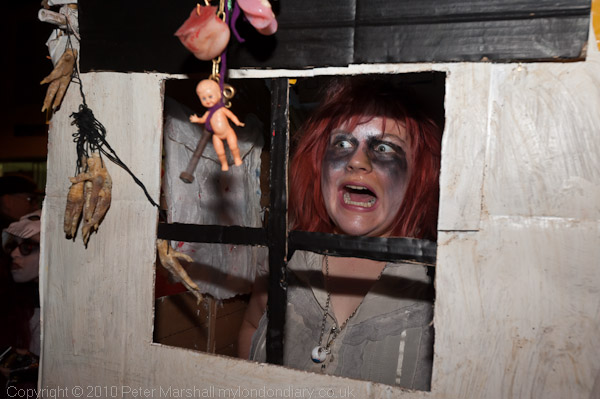
“A samba band, led by a giant skeleton came along from Coronet Street and led the large group of revellers, many carrying bottles, around Hoxton Square and then on to Old Street. By this time I’d been out taking pictures for around 8 hours and was feeling tired and hungry, so I jumped on a bus to begin my journey home, leaving the procession, organised by StrangeWorks Theatre collective and [then} in its fifth year, to head on its way to a dance in Gillett Square.”
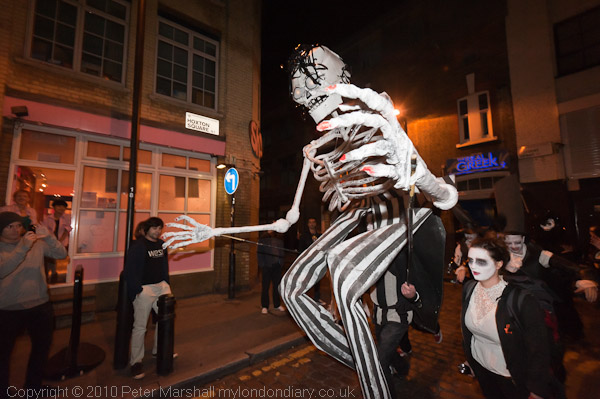
More pictures at Halloween In London.
Flickr – Facebook – My London Diary – Hull Photos – Lea Valley – Paris
London’s Industrial Heritage – London Photos
All photographs on this page are copyright © Peter Marshall.
Contact me to buy prints or licence to reproduce.
